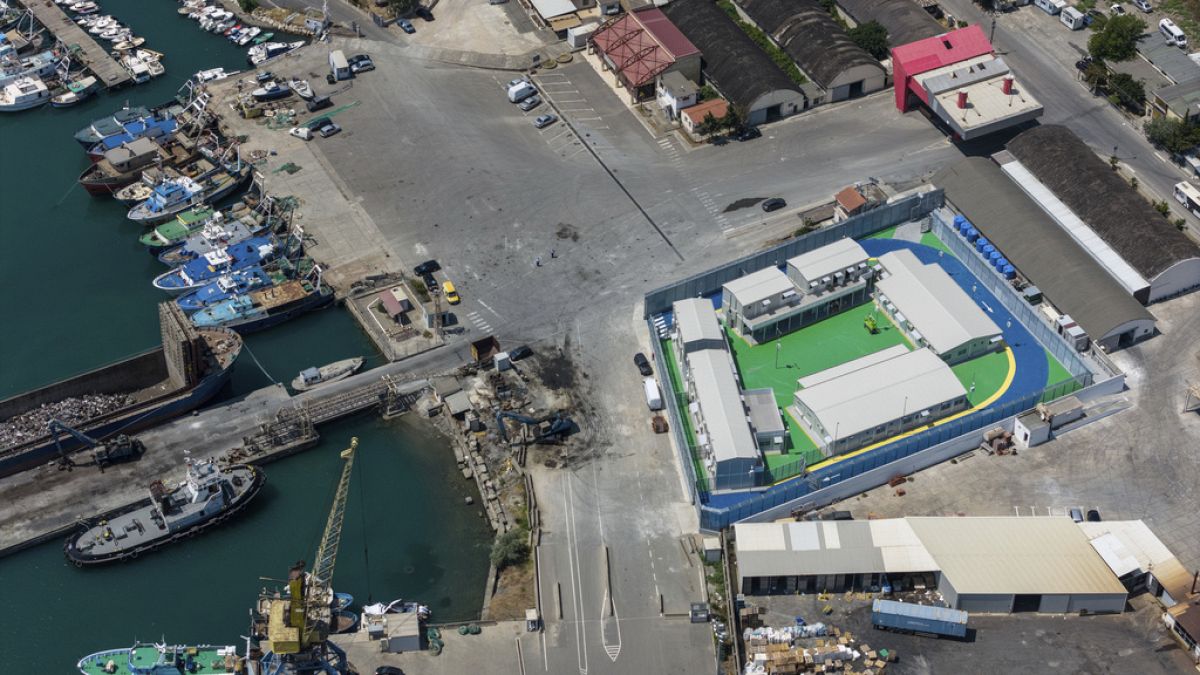In a recent development, Government-aligned MEPs have backed the plan to detain migrant arrivals in Albania instead of Italy, despite criticism from NGOs labeling the arrangement as “cruel”. The construction of two migrant reception centres in Albania funded and managed by Italian authorities has faced delays, with Prime Minister Giorgia Meloni announcing yet another postponement. Initially set to open last May, the controversial centres are now unlikely to be operational before the end of this year. Forza Italia MEP Flavio Tosi defended the plan, stating that the upfront costs of the centres are insignificant compared to the overall management expenses related to illegal migration.
Under the agreement between Italy and Albania, the latter will host up to 36,000 asylum seekers annually on behalf of Italy. Italian authorities will examine their cases to determine eligibility for repatriation. While this plan has been criticized by some organisations and opposition parties for violating human rights, MEP Tosi believes that Albania’s EU accession process ensures that human rights will be respected. He also emphasized the importance of strengthening relations with countries of departure, particularly in Africa. The controversy surrounding the Italian-Albanian plan reflects a broader trend in the EU towards externalizing asylum procedures.
Francesco Cherubini, a Professor of EU Law at Luiss University, explained that the externalization of migration policies gained momentum during the 2015 crisis in the Mediterranean. This approach, known for its effectiveness in ensuring migrants are not under the direct authority of the final European country of arrival, has been viewed positively by several EU member states. However, Cherubini pointed out two major issues with this strategy. Firstly, there are concerns about the human rights situation in the third countries where migrants are being sent. Secondly, the costs associated with implementing these policies have raised other complications.
Despite the controversies surrounding the Italian-Albanian plan, the “Italian model” has captured the interest of other countries. Cherubini mentioned that countries like Great Britain have also explored similar strategies with countries like Rwanda. While both the Italian and British approaches involve a significant level of cooperation with the third country, they have faced their respective challenges. The UK’s Rwanda policy, for example, encountered difficulties in domestic courts and was ultimately scrapped following a change in government. These developments highlight the complexities and ethical considerations involved in externalizing asylum procedures to third countries.
In the midst of debates about the Italian-Albanian plan and externalization of migration policies, concerns about violating international laws and human rights remain at the forefront. Critics argue that the automatic detention of migrants for extended periods under the plan goes against international law. Amnesty International Italy spokesperson Riccardo Noury expressed apprehension about the trend toward shifting responsibilities for processing migrant claims. He described the deal as cruel and aimed at discouraging migrants by breaching their rights. As discussions on the outsourcing of asylum procedures continue, balancing security concerns with respecting fundamental rights remains a significant challenge for policymakers across the EU.











